
James O'Brien 10am - 1pm
31 January 2021, 11:55

Teenagers tell LBC what life on the frontline is like
For almost a year, healthcare workers have put themselves on the frontline of the battle against Covid-19, selflessly fighting the virus which has kept the rest of us locked in our homes.
But as staff struggled to deal with the onslaught of patients, it was our doctors and nurses of tomorrow who stepped in to the most dangerous places to care for those whose battle with Covid became life-or-death.
Having barely entered their adulthoods, teenaged students have been volunteering in the ICUs and Covid wards to look after our sickest, forcing them to confront scenes that the rest of us would barely be able to to comprehend.
Jakub Saniukiewicz, 19, a biomedical science at St George's, University of London, has been working in both ICUs and Covid wards, and said the screams of those who have lost loved ones to the virus have left him lying awake at night.
But while the initial lockdowns saw older patients, the youngest Covid death has seen so far was only 21 - just two years older than him.
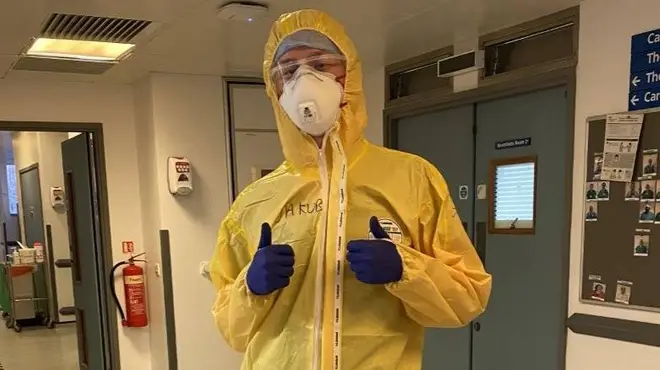
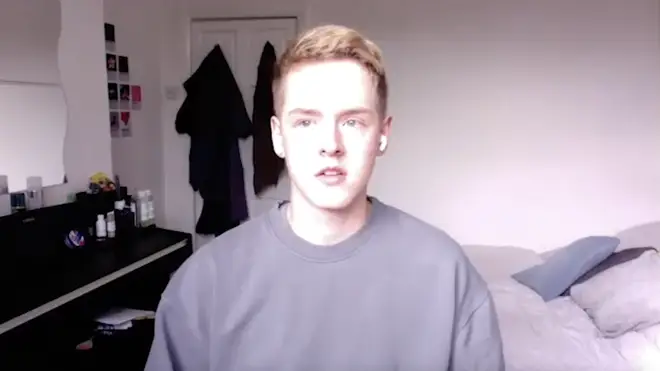
"It's now both genders, people that are younger. I've seen people as young as 21 pass away on our ICU wards. And they had their mother watching them through a FaceTime call as they died," Jakub, a second-year student at St George's, University of London, said.
"And I've been seeing people my mum's age, coming in and being very, very sick, and then having their sons and daughters who are my age coming in screaming and crying, begging their parents to wake up from the dead.
"And that's what I have to try falling asleep to."
Theodora Cantea, a 19-year-old biomedical science student at St George's University, recalled seeing one family having to say their goodbyes through a tablet as Covid restrictions brutally had to keep families apart for their own safety.
In one instance, she was there when two girls sang to their dad through a video call as he lay dying.
She added: "They're told that he might not make it through the night and they can't even see him because because of all the Covid restrictions, and it's kind of in that moment where it really does put a stop to everything and you need to think a lot about those moments."
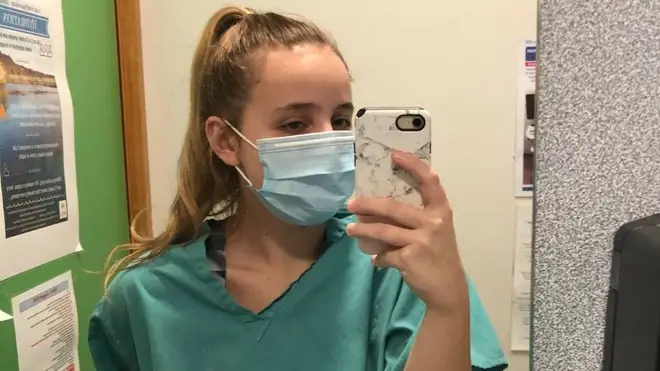
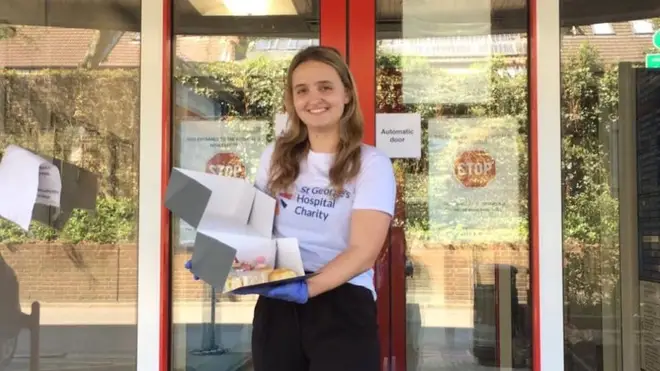
The wards themselves have been brutal places to work, with PPE making their 12 hour+ shifts a hot and sweaty environment.
Ameer Afridi,19, a second-year medical student at St George's, has spent time on ICU wards before now working on vaccination clinics to give our most vulnerable the protection they need.
He said that the PPE needed to keep himself and his colleagues safe has been one of the most unenjoyable parts of the job.
"I can think of an instance where I was in full PPE, it's completely boiling hot, you're you're sweating. And we were in a theatre, so an operating room, which they had converted into an ICU," he said.
You're in that environment with three patients who are extremely, extremely ill, and you are obviously sweating and extremely uncomfortable yourself, but you are there to care for them.
"So even though you you need to care for yourself, you're there to care for them. And because we were on such a shortage of PPE, we were either having to reuse PPE, so having to wash our own hazmat suits, or having to ration our breaks."
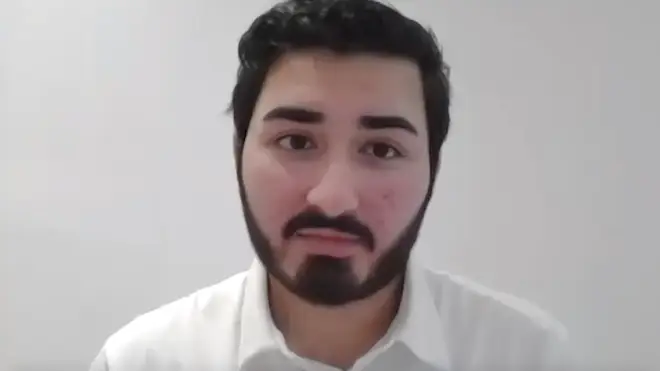
He explained: "If we only have three hazmat suits per person to use, then you can only take two breaks, because each time you go for a break, you need to take everything off.
"You're having to ration that to the extent where sometimes you can't even drink water because you have got your visor on, you've got your face mask on, and you don't want to touch anything or contaminate yourself."
But but despite the risks they have put themselves through, some have come across people lying in hospital gasping for air after contracting the virus, while at the same time denying its very existence.
Jakub said that some of his patients still believe that they simply have the flu, even up to the point where it's necessary to put them on a ventilator to save their lives.
"It's definitely astonishing to see that people coming into hospital into our Covid ICU are still believing conspiracy theories, up until the point that they're on a ventilator and they're not allowed to speak.
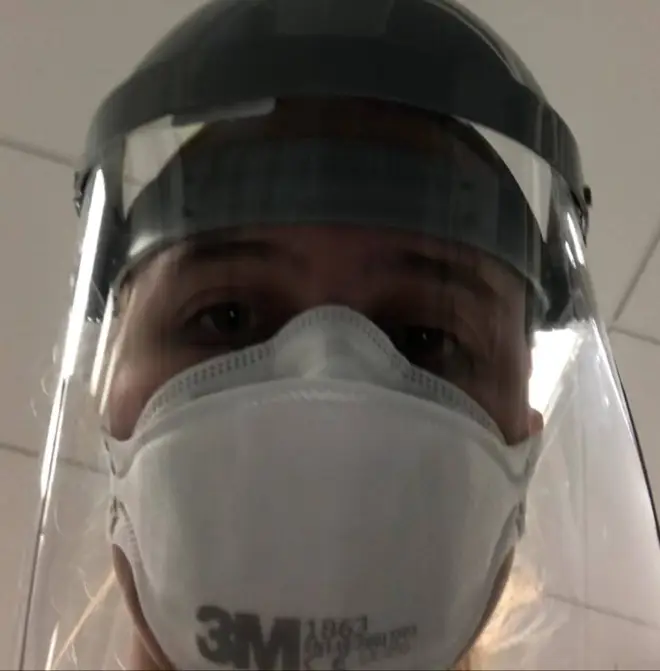
"It's astonishing to see that even when people are there seeing it firsthand, they still don't believe it."
He added: "That's the most difficult part of the job, joking around with the patient as they come into the ICU, and then the next week their dead and you're cleaning their body and pushing them away, unfortunately, down into the morgue."
All of the students LBC spoke to had one thing in common - their experiences on the frontline has toughened them up and made them better physicians, although they fear what effect this will have on their mental health in the years to come.
"Some days you do have some really tough shifts," Theodora said.
"And in those times, it's good to know where you can turn to, and debrief with people and friends.
"It can be quite a lot that you do see, but I've really enjoyed and learned so much and I really do enjoy what I do, so I think it's, it's really matured me actually quite a lot.
"It's also kind of given me that perspective of, what I want to do, as I grow older, and it's allowed me to see for myself, and also realise that you're not really too young, you can help in some way or another."
But not every part of this experience has made them want to turn their backs on medicine, in fact its fuelled the fire that made them want to be doctors in the first place.
Jakub said his experiences have made him "even more determined" to become a fully qualified doctor, and added that amongst his dark experiences, there have been rays of light.
"Although there are so many deaths, there are a few discharges," he said.
"And I remember seeing my meeting my first patient that I worked on seeing her completely, you know, really, really sick and then seeing her come out of it, speaking again. And she she said to me, I remember your name, I remember your voice when I was sedated. And when I was on a ventilator, I remember your voice and thank you so much.
"That just brought tears to my eyes. Amidst all the death, there was some hope that people are coming out of it."